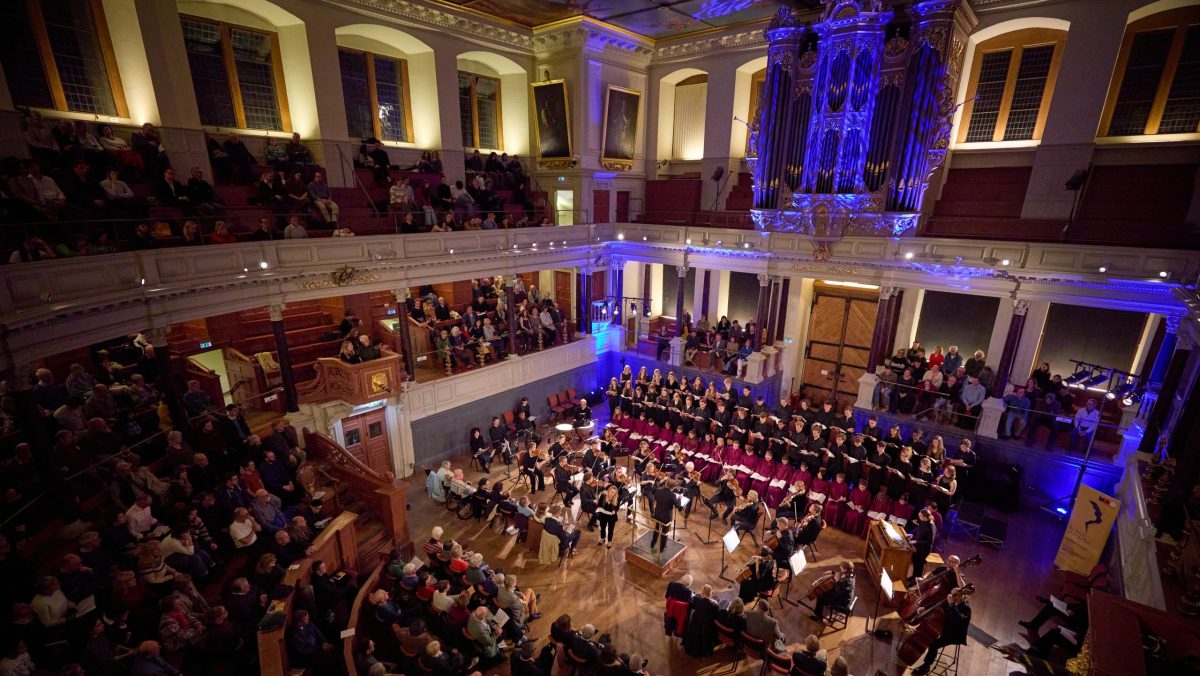After realising her microphone wasn’t working at the opening concert of 90 Years of Arvo Pärt: A Reflection, Rebecca Dawson (Artistic Director of Music at Oxford) proclaimed to a sold-out Sheldonian Theatre, “Arvo Pärt uses a lot of silence in his music”. Not only was this a quippy reaction to the technological malfunction, but it also illustrated the importance of resonance and intimacy in Pärt’s work.
This week, Music at Oxford is hosting 90 Years of Arvo Pärt: A Reflection, a classical music festival celebrating the birthday of one of the most widely performed and stylistically individual composers alive today.
Arvo Pärt was born in 1935 in the town of Paide, Estonia, and began his compositional studies at the Tallinn State Conservatory in 1957. While in the 60s, he was seen as a leader of the avant-garde movement within the Soviet Union, the censorship of his 1968 work, Credo, caused the composer to withdraw from both society and composition for almost eight years. After this intense period of secluded study, Pärt re-emerged with an entirely new compositional language: tintinnabuli.
The tintinnabuli style is characterised by its combination of diatonic melodic material alongside static triadic harmony and the “bell-like” sonorities which this disparity invokes. This results in music of great emotional intensity, gorgeous resonances, and prolonged soundscapes which gradually and masterfully transform into stunning climaxes. The listening experience is comparable to that of viewing a piece of fine art; one is introduced to a sonic world and, as with a painting, the eye looks to explore its intricacies, Pärt himself guides the listener through their own investigation of his music. The drawn-out nature of his work allows for much repetition to take place, which is the composer asking the listener: Is this important? What does it mean? And upon its repetition, does this still mean the same thing? Truly, every note matters to Pärt; it must be sounded, investigated, and hopefully understood.
At 90 years of age and in the year 2025, the minimalist and tintinnabuli language of Pärt’s music means it is more relevant than ever. In a world (and especially in a place such as Oxford) where the lives we lead are becoming increasingly cluttered, the austere music of Pärt is the perfect antidote, allowing its listener to be transported to a transparent and lucid sonic world. It is thus fabulous music to listen to while working. Check out this playlist for studying.
The festival began with a concert by the choirs of Merton College and the Britten Sinfonia in the Sheldonian Theatre. The programme comprised Pärt’s Fratres, Berliner Messe, and Vater Unser in addition to Tavener’s Song for Athene and Haydn’s Nelson Mass. Simply put, the quality of these performances was outstanding. Fratres begins with an incredibly delicate bariolage passage that emerges from total silence. Concert master Marcus Barcham Stevens’ technical and expressive control of this incredibly exposed and challenging moment enraptured the whole audience. Both Fratres and the Berliner Messe are exemplary works of the tintinnabuli style in their incorporation of drones, repetition, and harmony, in addition to the emphasis they place on individual sonorities. Any ensemble performing in the Sheldonian Theatre is forced to confront the challenge of its irritatingly ‘boomy’ acoustic, and given the importance of each individual sound’s resonance or afterlife in Pärt’s music, this problem is crucial. The ensemble’s mastery of the acoustic is thus all the more remarkable. They were able to brilliantly exploit the venue’s large space to allow every note to be truly sounded, heard, and lived. The final performed work by Pärt was the UK premiere of Vater Unser, written for choir and strings. Truly, the girl choristers of Merton College choir were impeccable in capturing the gorgeous melodic writing in this work. They provided a seriously impressive end to the first half.
On Wednesday, Arvo Pärt’s son, Michael, was interviewed by counter-tenor David James. Although this felt much more like a discussion than an interview, as David was particularly enthusiastic to share some delightful anecdotes from working with Arvo previously in his career, in quite a fascinating juxtaposition to what one would perhaps expect, it was Michael who provided analytical and historical insight of his father’s work, while David gave far more personal recollections of the memories he has of the composer. Together, they genuinely and organically painted an image of respect and admiration, both personally and musically, for Arvo.
Oxford seems to be quite a random place in which to hold a festival for the 90th birthday of an Estonian minimalist composer. While there is no specific reason for Oxford to host (as far as I’m aware), the two events I attended have revealed how entirely apt a setting it is. Of course, Arvo Pärt’s music is wonderfully individual yet accessible, and it is of great importance for classical music to celebrate its contemporary composers – especially for this composer whose music can be so simply and yet deeply felt. Additionally, Oxford is a place filled with busy, intellectual individuals, many of whom have been attracted to the city by its abundance of majestic architecture, splendid quads, and lavish gardens – people who like to look at, investigate, and question things. Pärt is also one of these people. He is fascinated by harmony, melody and text, and his works are concerned with solving each of these elements within itself. So it is for this reason that I believe Oxford is a suitable home for 90 Years of Arvo Pärt: A Reflection; Pärt’s tintinnabuli simultaneously creates a soothingly static soundworld but involves a musical problem-solving.
Oxford is incredibly lucky to be hosting several prestigious performers for this festival, and I would highly recommend attending the various events remaining around Oxford.

